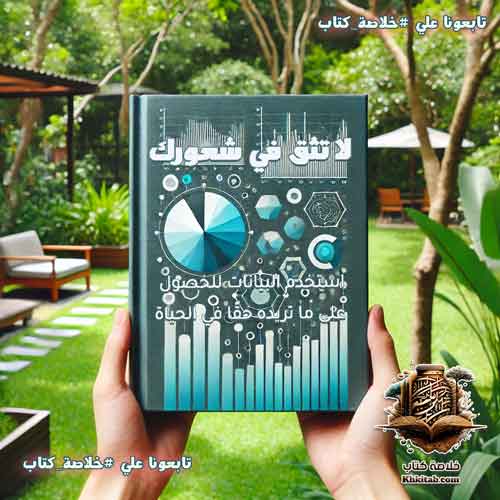101 Psychological Tricks to Tame the Mind Book Summary

In our modern era, where the pace of life accelerates and the intricacies of the human mind grow, the quest for serenity and mental balance remains a perpetual pursuit for many. “101 Psychological Tricks to Tame the Mind” by Brianna Wiest offers a remarkable collection of essays that aim to guide readers towards a deeper understanding of themselves and the world they inhabit.
This book is not merely a compilation of tips and tricks; it’s a comprehensive guide that blends psychological theories with real-life experiences to provide the reader with a renewed perspective on their thoughts and behaviors. Through relatable examples and in-depth analyses, the book grants readers the opportunity to delve into and understand their motivations and desires more profoundly.
The book also showcases a range of techniques and methods that facilitate taming the mind and achieving a state of mental tranquility. These tricks and techniques are backed by psychological and scientific research, ensuring their credibility and effectiveness.
In conclusion, “101 Psychological Tricks to Tame the Mind” is your ideal handbook for navigating psychological challenges and achieving mental equilibrium. If you’re looking to shift your mindset and delve deep into the recesses of your psyche, this book will be your perfect companion on that journey.
إقرأ أيضا:Great Leaders Have No Rules: Rethinking Innovative Leadership PrinciplesHow Can Self-Awareness and Introspection Transform Your Life?
In “101 Psychological Tricks to Tame the Mind”, one of the most pivotal topics explored is the concept of self-awareness and introspection. Delving deep into this subject, the book underscores the transformative power of truly understanding oneself, which can be the foundation for personal growth, improved relationships, and overall well-being.
Self-awareness, as the book elucidates, is not just about knowing one’s likes or dislikes. It goes beyond the surface, penetrating into the intricacies of our thoughts, the reasons behind our feelings, and the sources of our motivations. By being self-aware, individuals can recognize patterns in their behavior, identify triggers that might lead to negative emotions or reactions, and understand the root causes of their decisions and choices.
Introspection, on the other hand, is the active process of reflecting on one’s experiences, beliefs, and actions. It’s the act of looking inward and asking oneself profound questions like “Why did I react this way?” or “What truly matters to me?”. The book suggests that regular introspection can lead to significant personal revelations that can shift one’s perspective, leading to more informed, conscious decisions in the future.
Furthermore, the combined power of self-awareness and introspection is emphasized as a key to unlocking one’s full potential. When individuals can navigate their internal landscape with clarity and understanding, they are better equipped to face external challenges, build authentic relationships, and lead lives that align with their core values and aspirations.
In essence, “101 Psychological Tricks to Tame the Mind” posits that by dedicating time to self-reflection and by truly understanding oneself, individuals can pave the path to a life that’s not just successful in societal terms but also fulfilling on a deeply personal level.
How Can Mindfulness Techniques from ‘Essays That Will Change The Way You Think’ Help Ground Us in the Present?
Brianna Wiest’s “101 Psychological Tricks to Tame the Mind” delves deep into the realms of human psychology and consciousness, providing readers with valuable insights into navigating the complexities of life. Among the many profound topics addressed, the concept of mindfulness and presence stands out as a key area for achieving a balanced and harmonious existence.
Mindfulness, as highlighted in the book, is the practice of bringing one’s attention to the current moment, observing thoughts, emotions, and sensations without judgment. It’s not just a buzzword but a transformative technique that has been backed by numerous scientific studies to improve mental well-being. The power of mindfulness lies in its simplicity – the act of being entirely in the moment, free from the chains of past regrets or anxieties about the future.
One of the primary benefits emphasized in “101 Psychological Tricks to Tame the Mind” is the ability of mindfulness to serve as an anchor. In our fast-paced world, bombarded by external stimuli and digital distractions, it becomes easy to feel adrift. However, through mindfulness techniques, individuals can find stability and grounding. This not only helps manage stress but also enriches experiences, making moments more vivid and memorable.
The book also offers practical techniques to cultivate mindfulness. These range from formal meditation practices to simple daily habits, such as taking a moment to focus on one’s breath, appreciating the sensory details of an activity, or actively listening when someone speaks.
In conclusion, the emphasis on mindfulness and presence in “101 Psychological Tricks to Tame the Mind” offers a promising pathway for those seeking to live with more intention, joy, and peace. In a world where uncertainty is a given, these techniques act as tools to find stability within oneself, making life’s journey more fulfilling and centered.
Our Facebook Page – Book Summary
How Does ‘Essays That Will Change The Way You Think’ Guide Personal Growth and Transformation Through Life’s Challenges?
Brianna Wiest’s compelling book, “101 Psychological Tricks to Tame the Mind”, intricately unfolds the concept of personal growth and transformation as crucial aspects of human existence. The essence of the book lies in encouraging individuals to perceive life’s challenges and obstacles not as daunting dead-ends but as essential gateways to growth and learning.
Life is inherently filled with various challenges, ups, and downs, and in between, there lies an abundance of opportunities for self-improvement and evolution. Wiest’s essays poignantly emphasize the transformative power of embracing life’s difficulties with a mindset geared towards learning and expansion. By adopting such a perspective, the book suggests that hardships can be maneuvered into experiences that enhance one’s personal wisdom, resilience, and overall character.
The author eloquently champions the idea that every encounter, especially the challenging ones, comes with a lesson that, when deciphered and internalized, propels individuals towards a heightened state of self-awareness and realization. The life lessons that stem from struggles and adversities are painted as indispensable tools that mold one’s path towards becoming a more refined and enlightened version of themselves.
Moreover, “101 Psychological Tricks to Tame the Mind” inspires readers to cultivate a continual growth mindset. This involves remaining open, curious, and flexible in the face of life’s ever-changing scenarios, ensuring that personal development remains an ongoing journey rather than a static destination.
In conclusion, Wiest’s book serves as an enlightening companion that subtly nudges readers towards embracing a transformative journey where challenges are revered as powerful catalysts for personal growth and invaluable learning experiences. Her profound insights and thoughtful advice instill a fortified sense of purpose and direction in navigating the complexities of life with grace and wisdom.
How Does ‘Essays That Will Change The Way You Think’ Delve into the Dynamics of Relationships and Their Influence on Well-being?
In “101 Psychological Tricks to Tame the Mind”, Brianna Wiest provides insightful perspectives on the multifaceted nature of relationships and their pivotal role in shaping one’s mental and emotional state. The book paints a vivid picture of how human connections, both deep and fleeting, significantly impact our overall well-being.
At the heart of Wiest’s discussions lies the belief that relationships are mirrors reflecting our innermost selves. They bring to the surface our vulnerabilities, strengths, fears, and aspirations. Through a series of thought-provoking essays, the book emphasizes that the quality of our relationships often dictates the quality of our lives. When relationships are fulfilling and aligned with our values, they act as a source of support, growth, and joy. On the contrary, toxic connections can lead to stress, stagnation, and emotional turmoil.
Wiest further delves into the concept of boundaries and their importance in fostering healthy relationships. Recognizing and setting clear boundaries is portrayed as a form of self-love and respect for oneself and others. It ensures that relationships thrive on mutual respect and understanding, rather than manipulation or coercion.
Another salient point addressed in the book is the significance of self-awareness in relationships. By understanding ourselves better and recognizing our patterns, triggers, and emotional responses, we become better equipped to navigate the intricacies of interpersonal dynamics. This heightened self-awareness leads to more genuine connections, as individuals can then approach relationships from a place of authenticity and vulnerability.
Moreover, Wiest touches upon the idea of impermanence in relationships. Not all connections are meant to last a lifetime, and that’s okay. Recognizing the transient nature of some relationships helps in appreciating the lessons they bring and in letting go when the time is right.
In conclusion, “101 Psychological Tricks to Tame the Mind” offers a profound exploration of the world of relationships. By emphasizing the importance of self-awareness, boundaries, and the recognition of the transient nature of connections, Wiest encourages readers to approach relationships with mindfulness, authenticity, and gratitude.
Life Sciences & Medicine – Book Summary (khkitab.com)
How Does ‘Essays That Will Change The Way You Think’ Shed Light on Overcoming Adversity and Cultivating Resilience?
In the renowned book, “101 Psychological Tricks to Tame the Mind” the concept of overcoming adversity is beautifully dissected, offering readers a comprehensive perspective on the nature of life’s challenges and the paths to resilience. As adversities are inevitable parts of the human experience, understanding how to navigate them is paramount.
One of the prominent themes discussed is the inherent strength that adversity can foster. Contrary to the popular belief that hardships weaken the spirit, the book suggests that facing challenges head-on can be a source of growth and evolution. With every obstacle faced, there’s an opportunity to learn, adapt, and ultimately become more resilient.
A significant portion of the book delves into the different coping strategies individuals can employ. These strategies aren’t one-size-fits-all, but rather a plethora of tools from which individuals can select based on their personal circumstances. Techniques ranging from mindfulness practices, seeking support systems, reframing one’s perspective, to embracing change are all examined in-depth.
Moreover, the book emphasizes the impermanence of adversity. It argues that hardships, no matter how overwhelming, are transient phases of life. By internalizing this understanding, individuals can foster a mindset that views adversity not as an insurmountable hurdle but as a temporary challenge that can be conquered.
Additionally, the importance of self-awareness and introspection in the process of overcoming adversity is highlighted. By understanding one’s emotions, triggers, and responses, individuals can better equip themselves to handle adversities without being consumed by them. This introspective journey is presented as a continuous process of self-evaluation and growth.
In conclusion, “101 Psychological Tricks to Tame the Mind” serves as a beacon of hope for those navigating the tumultuous seas of adversity. It not only provides actionable strategies but also instills a sense of empowerment, emphasizing that with the right mindset and tools, adversity can be transformed into an avenue for growth and self-discovery.
How Does ‘Essays That Will Change The Way You Think’ Illuminate the Journey to Purpose and Fulfillment?
In “101 Psychological Tricks to Tame the Mind” the intricate journey of discovering one’s purpose and the pursuit of fulfillment is explored with deep introspection. Purpose isn’t something that’s merely stumbled upon, nor is it handed to us. It’s a cultivation, an ongoing dialogue between the self and the world, and this book serves as a guiding light for that conversation.
One of the primary takeaways from the book is the concept that purpose is ever-evolving. As we transition through different life phases, our understanding of our unique purpose can shift, grow, and become clearer. The text underscores the importance of being adaptable and open-minded in this continuous quest.
The book delves into the common traps that many fall into when seeking purpose, such as equating career success with life’s purpose or seeking external validation to find inner peace. Through thought-provoking essays, it breaks down these misconceptions, urging readers to look inward and ask the difficult questions about what truly brings them joy, passion, and satisfaction.
An essential theme emphasized is the distinction between fleeting happiness and genuine fulfillment. While happiness might be a temporary state influenced by external factors, fulfillment is a deeper, more enduring sense of contentment that stems from living in alignment with one’s purpose. This distinction serves as a compass, guiding readers towards actions and decisions that resonate with their core values and authentic selves.
Another powerful essay in the book touches on the relationship between setbacks and purpose. Often, it’s in our moments of adversity that our true purpose becomes more evident. Challenges, failures, and detours can be instrumental in shaping our path, refining our goals, and bringing clarity to our ambitions.
The journey towards fulfillment, as the book illustrates, isn’t a solitary one. Building meaningful connections, seeking mentorship, and engaging in enriching experiences all play vital roles in this exploration. By embracing both introspection and external experiences, one can paint a clearer picture of their purpose-driven life.
In conclusion, “101 Psychological Tricks to Tame the Mind” isn’t just a collection of thoughts; it’s a roadmap for those seeking to lead a life marked by purpose and fulfillment. With its holistic approach, it emphasizes the importance of both inner reflection and outer experiences, offering readers a comprehensive guide to living with intention and joy. Whether you’re at the start of your purpose-seeking journey or looking to redefine it, this book provides invaluable insights that can steer you towards a life of deeper meaning and satisfaction.
How Can ‘Essays That Will Change The Way You Think’ Help You Transform Detrimental Mental Habits?
The book “101 Psychological Tricks to Tame the Mind” delves deep into the understanding of how our minds are conditioned over time. These mental habits and patterns we form often operate below our conscious awareness, influencing our decisions, emotions, and overall well-being. A significant portion of the book is dedicated to recognizing and altering these unproductive mental habits, providing readers with insights and tools to make lasting positive changes in their lives.
1. Understanding the Origin:
One of the first steps in altering detrimental mental habits is understanding their origin. Our upbringing, past experiences, societal expectations, and personal traumas all play a role in shaping our mental patterns. Recognizing the root of these habits helps in detangling ourselves from their grip.
2. Awareness Before Change:
Without awareness, there’s no change. The book emphasizes the importance of mindfulness as a tool for self-reflection. It teaches readers to pay attention to their thoughts, no matter how fleeting, and to question the authenticity and productivity of these thoughts.
3. Shifting Perspective:
Many essays in the book focus on the power of perspective. By merely shifting how we view a situation or ourselves, we can change our emotional response to it. This reframing can turn a negative mental habit into a positive, empowering one.
4. Embracing Growth Mindset:
The fixed mindset, where we believe our abilities are static, often results in stagnation. On the contrary, a growth mindset, which the book promotes, encourages adaptability and continuous learning. Embracing this mindset can help us overcome many limiting mental habits.
5. Taking Action:
Awareness and intent are crucial, but without action, they remain fruitless. The essays encourage readers not just to recognize detrimental habits but to take proactive steps to modify or replace them. This could be through daily affirmations, seeking therapy, journaling, or any other method that resonates with the individual.
In conclusion, “101 Psychological Tricks to Tame the Mind” serves as an invaluable guide for anyone looking to understand their mental conditioning better and make transformative changes. It recognizes the complexity of human psychology and offers holistic advice to those wanting to cultivate healthier mental habits for enhanced well-being and happiness.
How Does ‘Essays That Will Change The Way You Think’ Illuminate the Dynamics of Decision-making and Life Choices?
Decision-making and choices are at the very core of our existence. Each day, we are confronted with myriad decisions – some trivial, some life-altering. The book “101 Psychological Tricks to Tame the Mind” delves deep into the intricate web of decision-making and elucidates how our choices mold our lives.
1. The Gravity of Choices:
Every decision, no matter how minor it seems, can have a ripple effect on our lives. The book underscores the importance of being conscious of our decisions, emphasizing that even seemingly insignificant choices can create monumental changes in the long run.
2. Emotional Versus Logical Decision-making:
It’s no secret that humans are emotional beings. The book dives into the tussle between emotional and logical decision-making, highlighting the strengths and pitfalls of each. By understanding the dynamics of both, individuals can better navigate their choices.
3. The Role of External Influences:
External factors often play a silent yet profound role in our decision-making process. From societal expectations to peer pressure, these influences can sometimes skew our judgment. The essays shed light on the importance of recognizing these external forces and learning how to maneuver through them.
4. Accepting Responsibility:
Taking responsibility for our choices is pivotal in the journey of self-growth. The book promotes the idea of accountability and introspection. Instead of laying blame externally, it encourages readers to look inward, analyze their decisions, and take ownership.
5. The Power of Adaptability:
Life is unpredictable, and not all decisions will lead to desired outcomes. The essays stress the significance of adaptability. By embracing change and being flexible in our approach, we can pivot when necessary and optimize the path we’re on.
In essence, “101 Psychological Tricks to Tame the Mind” serves as a profound guide to understanding the intricacies of decision-making. It underscores the profound impact of choices on life’s trajectory and provides valuable insights into navigating them with wisdom and clarity.
How Can “101 Psychological Tricks to Tame the Mind” Equip Us to Challenge Societal Norms and Expectations?
“101 Essays That Will Change The Way You Think” is not just a book; it’s a paradigm shift waiting to happen in its readers’ minds. In this work, one of the key themes addressed is the concept of societal norms and expectations and how they often bind us, sometimes invisibly, to predetermined paths and choices. The essays deeply delve into this theme, revealing layers of understanding that can equip individuals to challenge and break free from these norms. Here’s a deeper insight:
1. Understanding the Origin:
The book offers insights into the historical and cultural origins of many societal norms. Recognizing that many of these norms were established in different contexts and eras is essential to challenge their relevance in today’s world.
2. The Cost of Conformity:
Several essays highlight the price we pay for blindly following societal expectations – the loss of individuality, suppressed creativity, and sometimes even mental and emotional distress.
3. Celebrating Individuality:
One of the recurring themes in the book is the celebration of individuality. It stresses the idea that each person has a unique path, and adhering strictly to societal norms can prevent one from discovering and pursuing this path.
4. Practical Steps to Break Free:
While the book is philosophical and introspective, it also offers actionable steps to challenge societal norms. This includes techniques for self-reflection, seeking diverse perspectives, and cultivating courage to stand against the tide.
5. Stories and Anecdotes:
Real-life stories and anecdotes in the book provide examples of individuals who defied societal expectations to achieve personal success and happiness. These stories serve as both inspiration and a guide on how to navigate societal pressures.
6. The Role of Continuous Learning:
The essays emphasize the importance of continuous learning and staying updated. Societal norms often become outdated with evolving knowledge and understanding, and staying informed can empower one to make better decisions.
In conclusion, “101 Essays That Will Change The Way You Think” is more than just a collection of essays. It’s a profound exploration into the societal constructs that often confine us. By understanding, reflecting upon, and eventually challenging these norms and expectations, one can truly carve out a unique path in life, as the book vividly illustrates.








